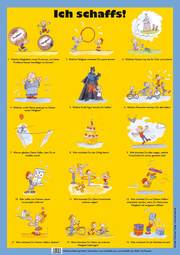Beschreibung
This book explores how school history textbooks are used to perpetuate nationalistic policies within divided regions. Exploring the divide and rule politics across ex-Yugoslav successor states, the editors and contributors draw upon a wide range of case studies from across the region. Textbooks and other educational media provide the foundations upon which the new generation build understanding about their own context and the events that are creating their present. By promoting nationalistic politics in such media, textbooks themselves can be used as tools to further promote and preserve ongoing hostility between ethnic groups following periods of conflict. This edited collection will appeal to scholars of educational media, history education and post-conflict societies.
Autorenportrait
Gorana Ognjenoviis Research Fellow at the University of Oslo, Norway.Jasna Jozeliis a PhD candidate at the Norwegian Centre for Human Rights, Norway.
Inhalt
Foreword: Sarajevo in the twentieth century, or, the manufacture of European history; Anne Madelain.- Chapter 1. Nationhood and the politicization of history in school textbooks; Gorana Ognjenovi and Jasna Jozeli.- Chapter 2. The ideologization of history education and textbooks in Slovenia (Yugoslavia) during socialism, 1945-1990; Mateja Re¸ek.- Chapter 3. Ideological changes in the history textbooks of Montenegro; Sa¨a Kne¸evi and Neboj¨a agorovi.- Chapter 4. Kosova under Yugoslavia (1945-1999) in the history textbooks of Kosova and Serbia; Shkëlzen Gashi.- Chapter 5. History, identity and curricula: Public debates and controversies over the proposal for a new history curriculum in Croatia; Snje¸ana Koren.- Chapter 6. Phantoms of Neverland: The tale of three+ history textbooks; Gorana Ognjenovi.- Chapter 7. Where and how do pupils in Serbia learn about the 1990s Yugoslav wars?; Marko ¦uica, Ana Radakovi, and Slobodan Rudi.- Chapter 8. To believe or not to believe: Current history textbooks in Bosnia and Herzegovina; Goran ¦imi.- Chapter 9. The most golden age: A discourse analysis of representations of medieval Bosnia in secondary school history textbooks in the Federation of BiH; Sead S. Fetahagi.- Chapter 10. Teaching history with an ethno-nationalistic approach: History textbooks in the education system of Bosnia and Herzegovina; Jasna Jozeli.- Chapter 11. The myth of victimization in Macedonian history textbooks (1991-2018); Darko Leitner Stojanov and Petar Stojanov.- Chapter 12. Southeast Europe in history textbooks: A variety of selective perceptions; Zrinka ¦timac.- Chapter 13. Afterword; Sabine Rutar.
E-Book Informationen
„eBooks“ sind digitale Bücher. Um eBooks lesen zu können, wird entweder eine spezielle Software für Computer, Tablets und Smartphones oder ein eBook-Reader benötigt. Da es eBooks in unterschieldichen Formaten gibt, gilt es, folgendes zu beachten.
Von uns werden digitale Bücher in drei Formaten ausgeliefert. Die Formate sind EPUB mit DRM (Digital Rights Management), EPUB ohne DRM und PDF. Bei den Formaten PDF und EPUB ohne DRM müssen Sie lediglich prüfen, ob Ihr eBook-Reader kompatibel ist. Wenn ein Format mit DRM genutzt wird, besteht zusätzlich die Notwendigkeit, dass Sie einen kostenlosen Adobe® Digital Editions Account besitzen. Wenn Sie ein eBook, das Adobe® Digital Editions benötigt, herunterladen, erhalten Sie eine ASCM-Datei, die zu Digital Editions hinzugefügt und mit Ihrem Account verknüpft werden muss. Einige eBook-Reader (zum Beispiel PocketBook Touch) unterstützen auch das direkte Eingeben der Login-Daten des Adobe Accounts – somit können diese ASCM-Dateien direkt auf das betreffende Gerät kopiert werden.
Da eBooks nur für eine begrenzte Zeit – in der Regel 6 Monate – herunterladbar sind, sollten Sie stets eine Sicherheitskopie auf einem Dauerspeicher (Festplatte, USB-Stick oder CD) anlegen. Außerdem ist die Anzahl der Downloads auf maximal 5 begrenzt.






